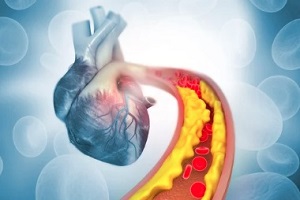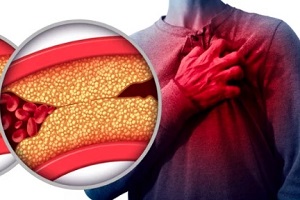 Cholesterol is a natural element in your blood that supports the functions of hormone levels, cell membranes, and more. However, if you have excessive cholesterol or high blood cholesterol, it’s a severe problem. It is a major risk factor for stroke, heart disease, and heart attack.
Cholesterol is a natural element in your blood that supports the functions of hormone levels, cell membranes, and more. However, if you have excessive cholesterol or high blood cholesterol, it’s a severe problem. It is a major risk factor for stroke, heart disease, and heart attack.
According to one report, over 102 million adults in the US have high cholesterol. In addition to medication, healthy living habits can improve cholesterol levels in your body.
This article will explore four effective ways to prevent high cholesterol.
What’s High Cholesterol?
Also called hypercholesterolemia or hyperlipidemia, high cholesterol is a condition that results from excessive (over 200 mg/dL or higher) lipids in your body.
Your body requires lipids (fats) to function; however, if you have an excess of fats, it can’t utilize them all. The additional fats stick to blood vessel walls and create a buildup known as plaque (fatty deposits).
Although this plaque may not cause health issues for years, if left untreated, it can increase your risk of strokes, heart disease, and other problems over time.
Risks of High Cholesterol
Evidence strongly suggests that hyperlipidemia (high cholesterol) increases the risks of:
 Strokes
Strokes- Heart attacks
- Narrowing of arteries (atherosclerosis)
- Peripheral artery disease
- Ministroke (transient ischemic attack)
High cholesterol can create a buildup (plaque) in your arteries, restricting blood circulation to your brain, heart, and other parts of your body. Also, combined with a few other factors, high cholesterol can lead to blood clots in arteries.
Moreover, high blood cholesterol increases your chances of getting coronary artery disease, which causes pain in the arm or chest during physical activity or stress.
Now that you know the risks, let’s find out how to effectively prevent or reduce high cholesterol.
4 Effective Ways to Prevent High Cholesterol
Listed below are four lifestyle changes that will help you maintain healthy cholesterol levels and reduce the risk of strokes and other types of heart diseases:
1. Maintain a Healthy Diet
 If your diet is excessively high in trans and saturated fat, more fatty substances (lipids) will accumulate in your blood vessels (arteries). That’s because foods high in fats contain cholesterol.
If your diet is excessively high in trans and saturated fat, more fatty substances (lipids) will accumulate in your blood vessels (arteries). That’s because foods high in fats contain cholesterol.
The two main kinds of fat include unsaturated and saturated. Avoid foods with saturated fats (fatty food) as they can increase the blood’s bad cholesterol (low-density lipoprotein) levels.
Here are a few foods high in saturated fats:
- meat pies
- butter
- hard cheese
- lard
- cream and milkshakes
- biscuits and cakes
- ghee
- foods containing palm or coconut oil
- sausage
- bacon
- pastries like quiches, croissants, and pies
Also, it’s unhealthy to eliminate all fats from the diet. Instead of consuming fatty foods, eat food high in unsaturated fats because they can increase good cholesterol (high-density lipoprotein) levels, ease inflammation, and reduce blockage in arteries.
Here’s a list of foods high in healthy fats:
- Avocados
- Seeds and nuts
- Oily fish like salmon, tuna, and mackerel
- Sunflower, olive, and grapeseed oil
- Eggs
In addition, a low-fat, high-fiber diet such as bread, pasta, wholegrain rice, and vegetables and fruits can also help reduce high cholesterol.
Vegetables and fruits are rich in vitamins, fiber, and minerals and help maintain a healthy body. Consume five, 80-gram portions of vegetables and fruits daily to lower the risk of serious health issues such as stroke, heart disease, and others.
2. Exercise More
Staying active and exercising more can increase good cholesterol levels within the body by moving plaque (fatty deposits) to the liver so they can be broken.
Physical activities can also help manage your weight and reduce blood pressure and cholesterol levels. If you’re overweight, exercise regularly because obesity can significantly increase bad cholesterol levels in the blood.
Here are a few things you can do:
 Always remain active. Health-care professionals recommend two hours a week of moderate-intensity exercises like bicycling or brisk walking for adults. For adolescents and children, one hour of exercise every day is more than sufficient.
Always remain active. Health-care professionals recommend two hours a week of moderate-intensity exercises like bicycling or brisk walking for adults. For adolescents and children, one hour of exercise every day is more than sufficient.
Make physical activities an integral part of your day. Instead of taking the elevator, take the stairs. Also, park your vehicle a bit further and walk.
3. Quit Smoking
Smoking cigarettes causes blood vessels to constrict (get narrower), pushing blood to move through much smaller space and increasing the risk of heart strokes, attacks, cancer, and other diseases.
According to one report, one-third of deaths from coronary artery disease yearly are due to secondhand smoke and smoking. Quitting smoking can improve high-density lipoprotein cholesterol levels in your body. Here’s how it can benefit you:
- In three months, lung function and blood flow will start to improve.
- After one year, the risk of stroke and heart disease is halved.
4. Limit Alcohol Consumption
 Drinking more than a moderate amount of alcohol may increase triglycerides and bad cholesterol levels in the blood.
Drinking more than a moderate amount of alcohol may increase triglycerides and bad cholesterol levels in the blood.
Make sure to:
- Consume 14 or fewer units of alcohol per week.
- Have multiple drink-free days every week.
- Avoid binge drinking.
Consult the Imperial Center Family Medicine Experts for Your Cholesterol Screening and Management
High blood cholesterol increases your risk of heart attack and heart disease. So, knowing and managing your cholesterol level is important as is remaining active and healthy.
At Imperial Center Family Medicine (ICFM), our health-care professionals and experts know how crucial early detection and treatment are in patients with high cholesterol.
Get in touch with our providers to schedule a high-cholesterol screening session. We will help you to manage your cholesterol and live healthier.
